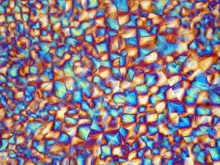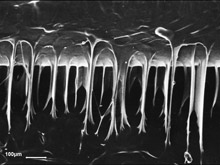Lewtas
Science & Technologies
PROVIDING SCIENCE, TECHNOLOGY & PRODUCT SOLUTIONS IN THE FIELDS OF CRYSTALLIZATION, OILS, FUELS, POLYMERS & ENERGETIC MATERIALS

40 years of widely varying experience covering many areas of science and technology has provided a wealth of knowledge and insight into the problems and opportunities across many and varied industries. Invention, innovation and problem solving is often achieved by applying such knowledge to different technology challenges. These are the types of projects we run in collaboration with academia and industries.
Scientific areas we cover include: (i) Organic and Polymer Chemistry, (ii) Solution and Melt Molecular Interactions, (iii) Soft Matter, e.g. Adhesion, (iv) Polymer Chemistry, Physics and Processing and (v) Oil and Fuel Science and Engineering. Phase changes and crystallization are of particular scientific, technological and business interest.

We have been working on phase-changes and crystal growth for over 40 years both academically and industrially. The theories and practice of crystal modification (nucleation, growth (inhibition and acceleration) and control of polymorphs and habits) have been commercially successful by the design of additives. We have now added the new field of acoustic crystallisation control.

We have been working on waxes, oils and fuels (synthetic, mineral and natural) for over two decades together with the relevant engineering research. Most oils and fuels rely on additives to enable their use as efficient fuels and lubricants. Waxes too can be produced, modified and used by the addition of additives. We have now added the new field of acoustic phase change control.

Three decades of polymer R&D into polyolefin rubbers and elastomers, polymer formulations that make adhesives, polyolefins for films and moulding to engineering thermoplastics. Modification of the processing and properties can be achieved by designing the architecture, formulations and use of specific additives and/or the new acoustic control invention.

The principle that we have always worked towards is the fundamental understanding of the phenomena involved in the final industrial applications. This involves the science and technology of the interactions between the molecular components. It covers analysis, experiment and modelling. Close academic contacts are essential for the research.
© 2021 Lewtas Science & Technologies. No content to be reproduced without prior permission.
Website design and development by B&M Design & Advertising